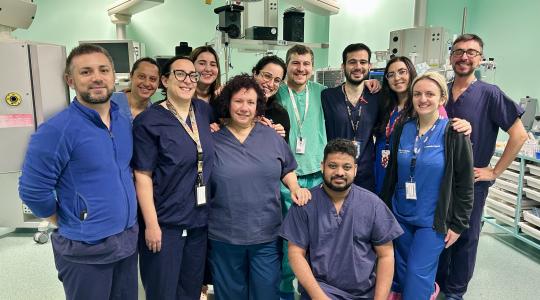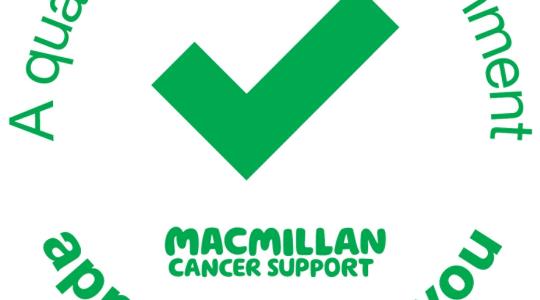Improving patient outcomes through Multi Disciplinary Team Meetings
Following our engagement event in July, where clinical and non-clinical cancer staff came together to collectively decide how Multi Disciplinary Team Meetings (MDTMs) will look and feel moving forward, we have been doing a lot of work to follow up on the key actions from this day.
We held our first steering group meeting on 6 October, which brought together representatives from all three of our providers – Barts Health; Barking, Havering and Redbridge University Trust; and Homerton Healthcare – to make key decisions about the next steps for MDTMs.
As a reminder, MDTMs are where a group of health and care staff who are members of different organisations and professions (e.g. GPs, clinicians, nurses) come together to make decisions regarding the treatment of individual patients and service users.
Ben Lamb, Clinical Lead for MDTM development for the North East London Cancer Alliance, says “We are keeping the momentum going and there are a lot of exciting initiatives underway in north east London, which will really help to improve patient outcomes.
“For example, we have agreed to implement an MDT coordinator course, which we have scoped and resourced through the North East London Cancer Alliance, as well as agreed study leave from trusts to support this training for MDT coordinators. This will really boost our ability to deliver improved MDTMs for patients.”
Overall, there was a lot of positive feedback from the steering group meeting about the programme of work and the direction of travel.
A key focus of activity is to reach out to our Expert Reference Groups (ERGs) to get them to take the lead in terms of streamlining, so that this is managed through the ERGs and standardised across north east London.
What is streamlining?
Streamlining follows NHSE guidance and is applied to cancer patients following their diagnosis. It uses standards of care documents to prioritise patients on their individual circumstances so that more complex cases go through a full MDTM and more straightforward, easier to treat, cases get support via a triage meeting and then progress to treatment quickly.
The benefit of this is that in simpler cases, patients get treatment more quickly and, at the same time, capacity for MDTMs is increased for patients with more complex needs, so they can get the specialist levels of support required.
Workstreams for MDT
At the engagement event, the stakeholders co-developed a number of key areas to focus on to deliver improvements to MDTMs. Since then, these have been refined and agreed at the steering group meeting. These are:
- Streamlining
- Technology
- Training and Education
- Pathology
Ellen Quinney, Programme Manager, says “These workstreams help bring together expertise in vital areas of activity that will make a difference to the way we run MDTMs in north east London for our cancer patients.
“Going forward we will also be looking at approaches in different tumour groups, with the overall aim of learning from other areas and bringing best practice to the whole of north east London.”
For more information
Find out more about the latest work of the North East London Cancer Alliance, visit our webpages.
Follow us on social media:
X: @CancerNEL
Facebook: @NELCancerAlliance
Instagram: @CancerNEL
YouTube: https://www.youtube.com/@nelcanceralliance
LinkedIn: https://www.linkedin.com/company/north-east-london-cancer-alliance/





